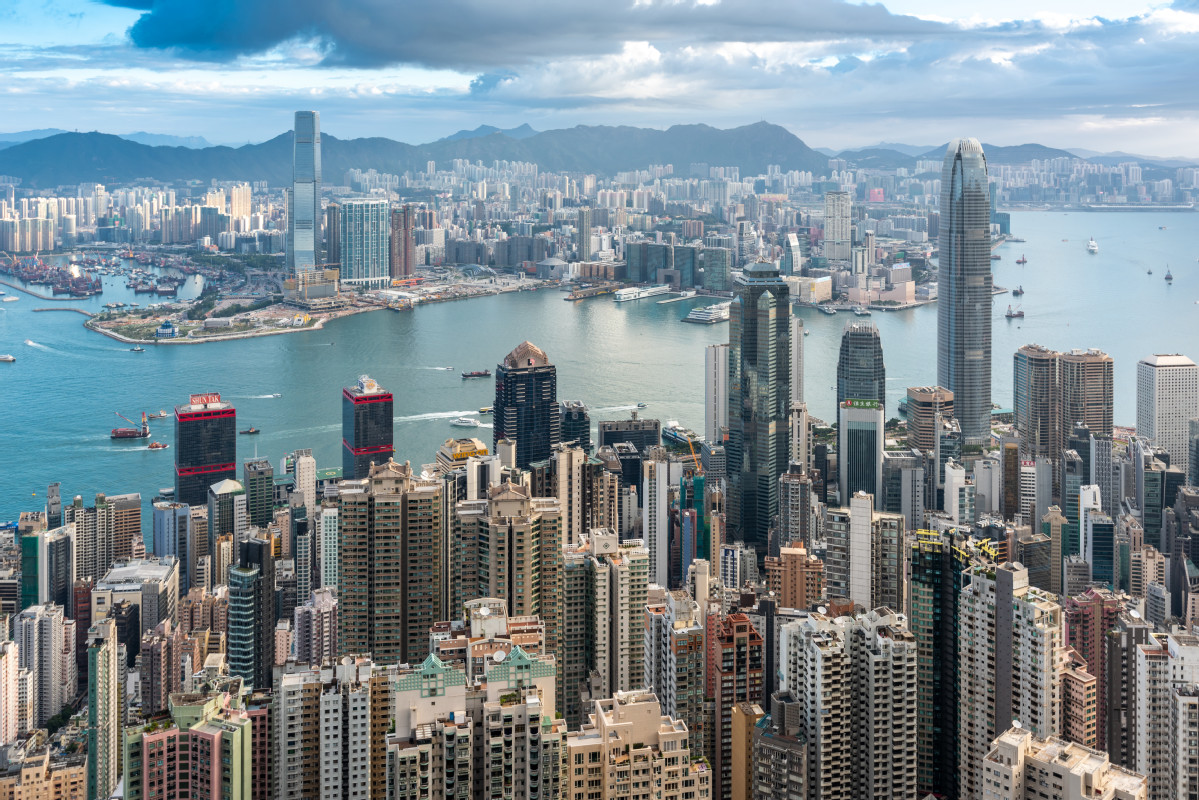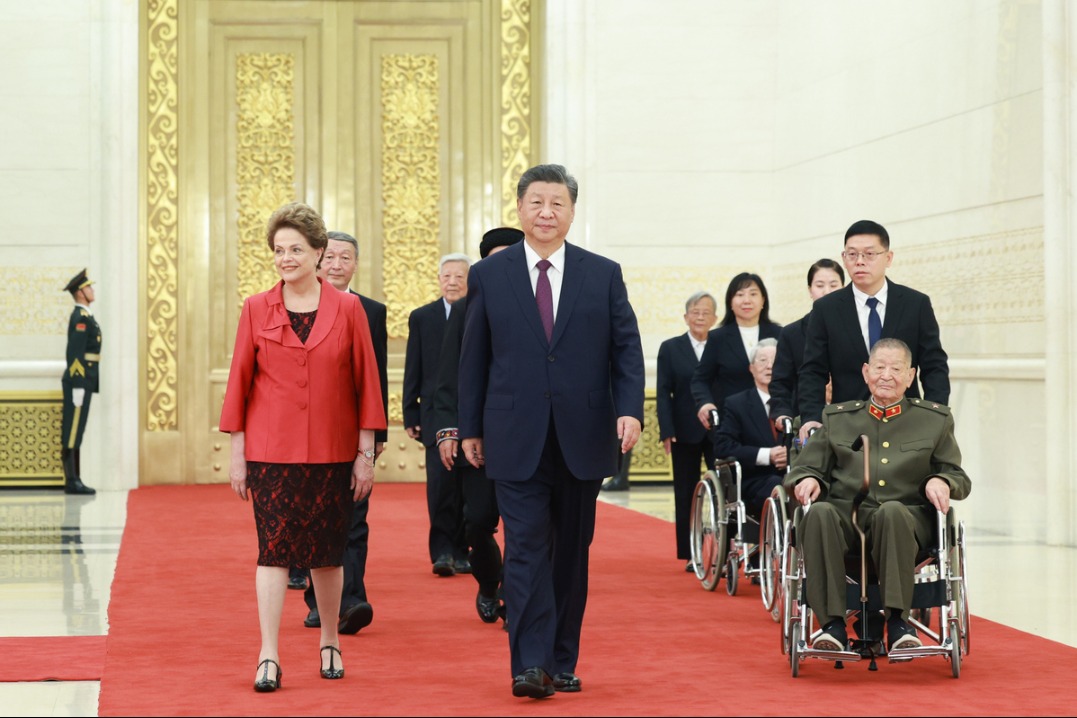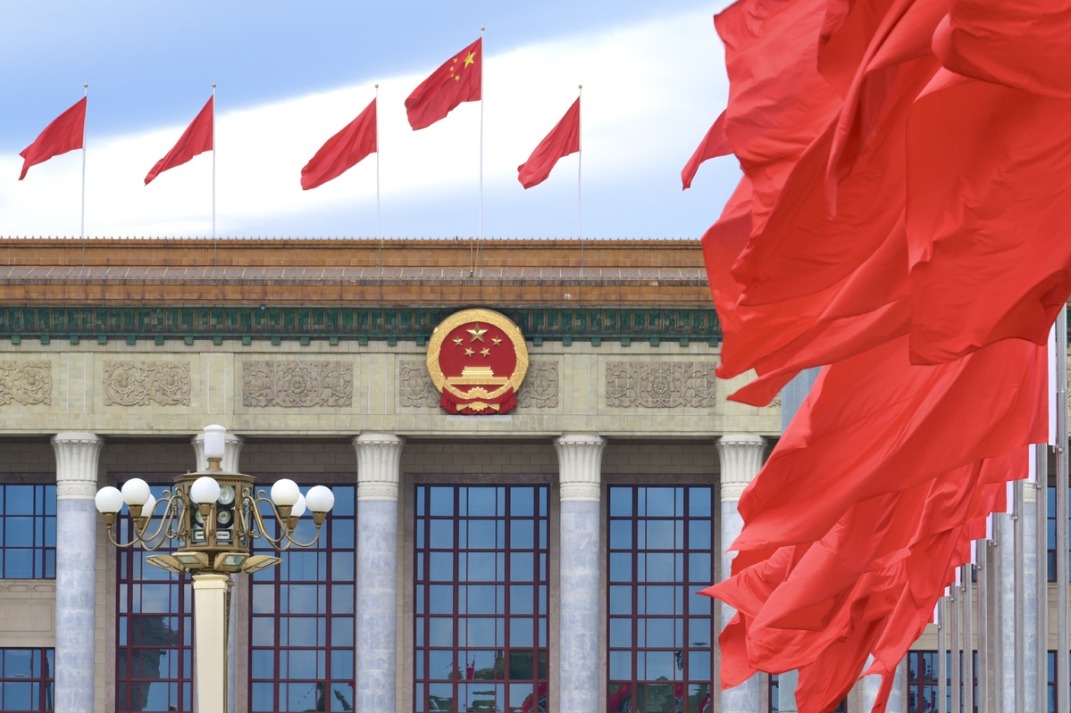Article 23 crucial for HK's long-term development
By Tony Kwok | chinadaily.com.cn | Updated: 2024-03-19 22:30

Hong Kong must remain ever vigilant so it can counter hostile forces trying to hinder the enactment of Article 23. The recent secret visit of US Ambassador to China Nicholas Burns, according to reliable information, to Hong Kong was more than coincidental. There are reasons to believe it was related to the enactment of Article 23.
Simultaneously, there have been unprecedented, coordinated efforts by the Western media to demonize the proposed law, called Safeguarding National Security Bill, by spreading fake news such as Hong Kong would shut down social media platforms or land Hong Kong residents behind bars, which are untrue. The law was passed by the Hong Kong Legislative Council on Tuesday and will become effective on Saturday.
Western media spread fake news about law
The Western media's blatant interference in Hong Kong's affairs, that too using fake news, is a blatant violation of journalistic ethics and international law.
As for the trial of media magnate Lai Chee-ying, it is significant and revealing that the evidence against him primarily comes from several of his former close associates who, after pleading guilty to conspiracy offenses, testified against him in court.
One curious media aberration is that while Lai's trial received extensive coverage in local newspapers, foreign media did not bother to cover its progress, although they had been reporting favorably of Lai's many confrontations with the Hong Kong authorities over the years. They refrained from reporting about all the facts revealed during the trial because they knew their readers and viewers would easily make their own judgment, which would not be to their liking.
Unsurprisingly, some local media and the local opposition have coordinated their actions to resist the enactment of Article 23. Rumors have been circulated on social media, saying people who violated the proposed law would be deported to the Chinese mainland despite the consultation document making it clear that all criminal proceedings related to Article 23 would be held in Hong Kong's courts.
Why do the so-called prestigious Western newspapers publish fake reports and act as rumor-mongers? The answer can be found in a recent revelation by Reuters that a special unit was created under the Central Intelligence Agency during Donald Trump's presidency "to launch a clandestine campaign on Chinese media aimed at turning public opinion in China against its government".
And in 2021, the US Congress approved an annual grant of $300 million to be used to curb China's global influence by supporting US international media to create fake news to demonize China.
Given the open threats from hostile foreign powers and their radical cronies in Hong Kong, who are trying their best to exploit any situation to cause havoc in society at this critical juncture, it is only fitting that the Hong Kong government sped up the legislative process for Article 23. While the Western media are criticizing the government's moves to expedite the process, they have conveniently forgotten that after the Sept 11 terrorist attacks in 2001, the US Congress passed the Patriot Act in just 45 days, with the entire legislative process taking only three days to complete and that too with little debate. The Western politicians and media have once again unwittingly revealed their double standard.
But the West's attempts to sabotage Article 23 is doomed to failure, because the traumatic experience of being besieged and attacked by anarchic elements with the help of hostile foreign powers has made Hong Kong residents realize the urgent need for a legislative security umbrella. And Article 23 is that legislative security umbrella — it will ensure there are no more 2019-like protests and violence which threatened even the "one country, two systems" policy.
The people of Hong Kong have become wiser after undergoing an unprecedented ordeal in 2019. No wonder in a "legal consultation survey", 98.6 percent of the over 13,000 respondents supported the enactment. They understand how the new law will plug the loopholes exploited by the rioters and demonstrators in 2019, and know it would contribute to Hong Kong's long-term stability, especially given the central government's recent announcement to extend the "one country, two systems" policy beyond 2047.
Contrary to the claims of some Western politicians and media, the enactment process for the bill was not rushed through. It has undergone public consultation, and many public opinions collected have been taken into consideration before finalizing the bill. A clause-by-clause deliberation followed with the Bills Committee of the Legislative Council holding 20 marathon sittings. Senior government officials, including the secretaries for justice and security, answered numerous questions from lawmakers and considered their suggestions on issues of public concern. The bill can be seen as striking the right balance between legal enforcement and human rights protection.
Hong Kong residents understand that Article 23 is similar to a home alarm system. The sooner it is installed, the sooner they can guard against burglary. Article 23, which would afford comprehensive legal protection against local and foreign-instigated hostile actions, is long overdue. It has been delayed for 27 years, which made possible foreign interference in Hong Kong's affairs.
Now that the bill is passed, there is a need to be more vigilant, and refute any false and misleading remarks by some foreign and local traditional media as well as social media, and trace their origin and funding sources to hold them accountable under the law.
One effective way of doing so is to prepare a comparative chart with the national security offenses and penalties included in Hong Kong's proposed legislation on the one side and those included in similar laws in the United States, the United Kingdom and Singapore on the other. The chart would show that the law is moderate compared with those in Western, advanced countries.
National security laws of other countries far more strict
For instance, the Internal Security Act 1960 of Singapore grants executive powers to the president to authorize the detention of a person without charge for up to two years (which can be further extended) on the grounds of preventing him or her from acting in any manner prejudicial to Singapore's national security or the maintenance of public order or essential services.
So, how can the West criticize Hong Kong when the law stipulates that a person can be detained for six days on suspicion of committing a national security offense, but it would be subject to a court's approval? It must also be stressed that no innocent Hong Kong resident will be convicted because, like all criminal offenses in the common law system, all national security offenses require establishing the mens rea of a suspect — the intention to commit an illegal act intended to harm national security.
Despite the public support it enjoys, we need a contingency plan to deal with the governments of some foreign countries interference after the bill is passed. Notably the US and the UK may use this as an excuse to impose sanctions on Chinese enterprises, individuals and other entities, which would throw China's financial market and trading into disarray and deter foreign investors from investing in the country. They have already been using scaremongering tactics to suggest Hong Kong would lose its status as a global financial center after Article 23 is implemented.
They might weaponize the US dollar, too, to weaken Hong Kong's status as a global financial and logistics hub, use dirty tricks to cause a slump in the Hong Kong stock market, and impose sanctions on individuals and entities in the SAR.
One thing is sure, the US and Western media, politicians and NGOs are likely to continue spreading rumors against Hong Kong, smearing and attacking the city to deter foreign investment and visitors. Therefore, the SAR government, the Hong Kong Monetary Authority and other monitoring bodies should be vigilant and prepare contingency plans to tackle all eventualities.
Intensive publicity campaigns should be launched to raise public awareness and encourage them to report national security offenses. And the authorities should strictly enforce it, just like what the Independent Commission Against Corruption did after the passage of the new anti-corruption law in 1974, and turning it into a strong deterrence against foreign hostile forces. This should be a game changer, helping restore lasting peace and stability in Hong Kong, making it a magnet for investors and visitors alike, and allow the SAR government to focus on economic and social development.
The author is an honorary fellow at the Hong Kong University SPACE and the Hong Kong Metropolitan University. He is a council member of the Chinese Association of Hong Kong and Macau Studies and a retired deputy commissioner of the Hong Kong Independent Commission Against Corruption.
The views don't necessarily reflect those of China Daily.
























